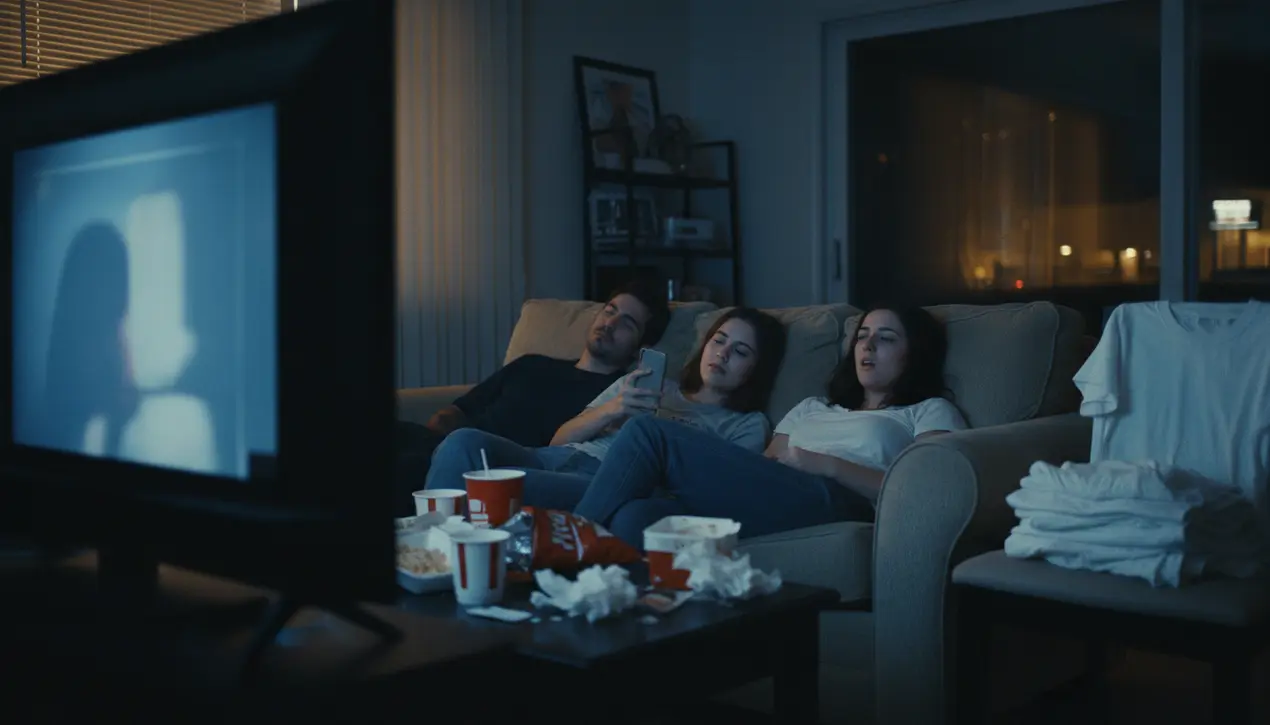
Entertainmentculture & trends
Why are TV’s main characters so forgettable now?
AM
Amanda Lewis
2 hours ago7 min read
The new HBOMax series *I Love L. A.*, already drawing inevitable comparisons to Lena Dunham's *Girls*, highlights a curious void at the heart of contemporary television: the forgettable protagonist. Centered on aspiring talent manager Maia, played by Rachel Sennott, and her orbit of influencer-adjacent friends, the show attempts to craft a relatable ensemble.Yet, the characters emerge as oddly indistinct, their dialogue a uniform patter of dry, 'cool-girl' wit that feels more like a curated Twitter feed than authentic human interaction. This isn't merely a critique of a single show's growing pains; it's a symptom of a broader cultural shift.We find ourselves in a pronounced TV character drought, a landscape where the iconic, knowable figures like Carrie Bradshaw, Don Draper, or Tony Soprano feel like relics of a bygone era. While exceptions exist—the Roy siblings from *Succession*, Carmy from *The Bear*, or the wonderfully niche Dr.Robbie from *The Pitt*—they are increasingly rare beacons in a sea of adequacy. The post-*Succession* period has been widely declared television's 'mid' era, an explosion of streaming content that is often perfectly watchable yet utterly disposable.The mechanics of television production itself have shifted to accommodate, or perhaps encourage, this disposability. The concept of writing that is 'second screen enough'—a term reportedly used by networks, as writer Justine Bateman highlighted during the SAG-AFTRA strikes—explicitly prioritizes background viewing over deep engagement.This philosophy hardly fosters vivid character-building. Instead, we see a rise in a vapid, spare form of writing epitomized by shows like Hulu's critically panned *All's Fair*, where characters serve as mannequins for designer outfits and vessels for ridiculously vulgar, meme-ready dialogue like 'c—burgers' and 'greedy little pig bottom.' The incentive for virality through clipped moments on TikTok often seems to supersede the narrative goal of creating compelling, multi-dimensional people. Furthermore, the modern television structure works against character immersion.Shorter, inconsistently scheduled seasons—consider the long gaps between *Euphoria* or *Severance*—prevent characters from hardening in the collective cultural consciousness, a process that critic Kathryn VanArendonk notes took multiple seasons for the legends of the Golden Age. Compounding this is a narrative trend away from propulsive, in-the-moment character revelation.Many contemporary prestige shows, including later seasons of *The Bear*, have been scrutinized for relying heavily on reverse-engineered backstories and flashbacks. VanArendonk argues this is a less effective technique than showing us who a character is through their active, present-tense choices.'I promise you that giving me a huge chunk of clues about how they became the person that they are is actually a less important and less effective way of making them feel like a real person,' she asserts. This vacuum in scripted television has been filled, with immense success, by real people.The relentless churn of reality television—from the *Real Housewives* franchise to *Love Island* and *The Kardashians*—creates household names and recognizable archetypes that persist for years, bolstered by longer seasons, tabloid coverage, and the stars' own constant social media activity. As *Salon*’s Coleman Spilde observes, 'The surge in reality-TV popularity is unmistakable, and it has taken over social media conversation in the way that *Mad Men* used to.' This speaks to a deeper, parasocial shift in our attention economy. Why invest in unraveling the nuances of a fictional protagonist over weeks when you can have an intimate, interactive relationship with an influencer, a podcaster, or a reality star on your phone? These personalities deliver content frequently and directly, and viewers can even participate in shaping their ongoing dramas, as seen with the fan-driven online gossip that now fuels shows like *Real Housewives*.This phenomenon has bled back into scripted television, resulting in a pipeline of internet comedians and influencers headlining their own series, from Benito Skinner's *Overcompensating* to the upcoming project from viral podcaster Jake Shane. While not inherently flawed, this trend often feels less like innovation and more like a fundamental distrust in an audience's ability to become absorbed in the truly unfamiliar.A familiar face like Rachel Sennott's in *I Love L. A. * provides a shortcut to recognition, but it's a pale substitute for the electric thrill of discovering a fresh, enigmatic character week after week—a experience that television, in its current form, seems increasingly hesitant to provide.
#TV characters
#streaming
#pop culture
#social media
#reality TV
#editorial picks news
Stay Informed. Act Smarter.
Get weekly highlights, major headlines, and expert insights — then put your knowledge to work in our live prediction markets.
Comments
Loading comments...
© 2025 Outpoll Service LTD. All rights reserved.